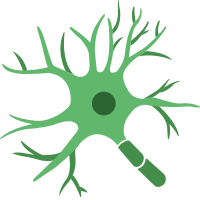
Neural Cell News
Neural Cell News is an online resource covering the latest research in neuroscience, neural stem cells, and neurological conditions.
Neural Cell News helps scientists keep pace with the latest research, reviews, and industry developments in neuroscience. Specific research topics include neural development and neuroregeneration, neural signaling related to cellular responses and behavior, and synaptic plasticity. Research into the diagnosis, progression, cellular characteristics, and treatment of brain diseases such as Parkinson’s, Multiple Sclerosis, Alzheimer’s, Amyotrophic Lateral Sclerosis and various brain cancers, as well as brain damage resulting from infection, trauma, stroke, seizures, and tumors, is also covered.

 Cancer Stem Cell News
Cancer Stem Cell News Cell Therapy News
Cell Therapy News Dermal Cell News
Dermal Cell News Endothelial Cell News
Endothelial Cell News ESC & iPSC News
ESC & iPSC News Extracellular Matrix News
Extracellular Matrix News Hematopoiesis News
Hematopoiesis News Hepatic Cell News
Hepatic Cell News Human Immunology News
Human Immunology News Immune Regulation News
Immune Regulation News
 Intestinal Cell News
Intestinal Cell News Mammary Cell News
Mammary Cell News Mesenchymal Cell News
Mesenchymal Cell News Muscle Cell News
Muscle Cell News Neural Cell News
Neural Cell News Organoid News
Organoid News Pancreatic Cell News
Pancreatic Cell News Prostate Cell News
Prostate Cell News Pulmonary Cell News
Pulmonary Cell News
